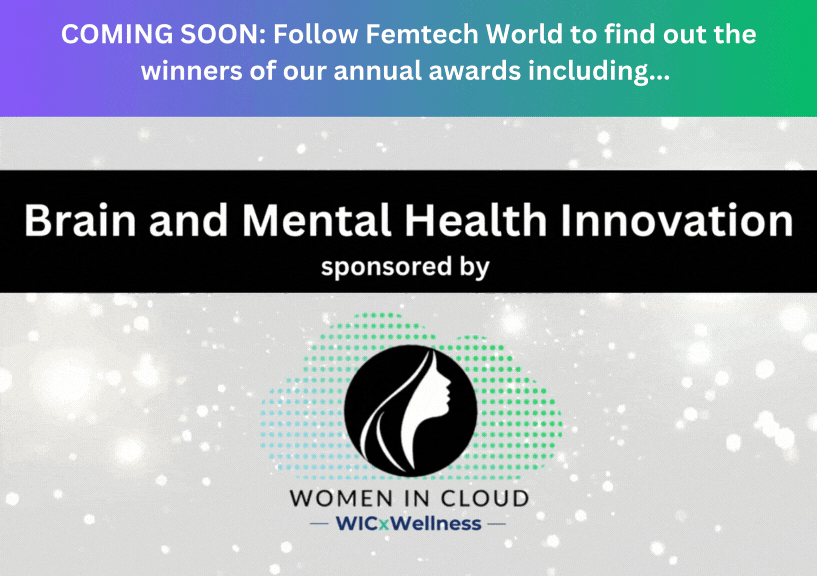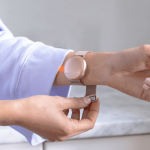Mental health
Study finds concerning decline in mental health among US mothers

A new study has revealed a concerning decline in self-reported mental health among mothers in the United States between 2016 and 2023, as well as modest but measurable declines in self-reported physical health during the same period.
The large-scale analysis examined data from 198,417 mothers who participated in the National Survey of Children’s Health (NSCH), a nationally representative annual survey of households with children aged 0 to 17. Most participating mothers were over age 30, and over half had a privately insured or a non-Hispanic white child.
“Although high rates of maternal morbidity and mortality have been well documented, national data on the health status of mothers beyond pregnancy and the first year postpartum is lacking.” said Jamie Daw, assistant professor of Health Policy and Management at Columbia Mailman School.
The findings show that the percentage of mothers reporting excellent mental health dropped sharply from 38 per cent in 2016 to 26 per cent in 2023. Similarly, the proportion reporting excellent physical health declined from 28 per cent to 24 per cent.
Most notably, the percentage of mothers rating their mental health as fair or poor rose by 3.5 percentage points over the 8 year-period, representing a 63.6 per cent increase from the baseline prevalence of 5.5 per cent in 2016. Declines in maternal mental health originated prior to the Covid-19 pandemic and were observed in nearly every socioeconomic subgroup examined.
Among fathers, the percentage reporting excellent physical health declined as well – from 30 per cent to 26.4 per cent; the changes in mental health were less pronounced. However, fathers reported substantially better mental and physical health than mothers in all years of the study.
The authors also examined disparities in maternal mental and physical health and found that the prevalence of fair and poor mental and physical health was considerably higher among mothers of lower educational attainment, single mothers, and those whose children have Medicaid or are uninsured.
Daw and colleagues emphasise the intergenerational consequences of poor parental mental health, including increased risks for adverse birth outcomes, developmental delays, and mental health issues in children.
“Maternal mood disorders, in particular, can have long-term effects on children, directly by affecting development, and indirectly, by increasing the chance of exposure to co-occurring risks such as parental substance use and lower household resources,” Daw said.
“Our results highlight the rising tide of worsening mental health among parenting women as a key target for efforts to improve maternal and child health in the US.
“We found consistently worse health outcomes for mothers compared to fathers, suggesting that mothers may need additional consideration and attention in policies aimed at supporting parental health and especially mental health.
In all cases, our study underscores the need for more comprehensive research on the health and well-being of U.S. parents more broadly, and we urge support for more interventions that support prevention, diagnosis and treatment of mental health outcomes.”
News
Thriving through the ups and downs: A guide to women’s mental health

By Naomi Magnus, psychotherapist and founder at North London Therapy
Women’s health is closely linked to our biology, hormones, and the way our brains are wired, all of which shape our life experiences.
From the teen years right through to adulthood, hormonal ups and downs can affect mood, thinking, and emotional resilience in ways that are uniquely female.
Oestrogen and progesterone, for instance, don’t just influence fertility – they also play a key role in regulating neurotransmitters like serotonin and dopamine, which affect mood and anxiety.
In your twenties, when careers, relationships, and life choices are all coming together, it’s perfectly normal to feel anxious or low at times.
Anxiety disorders can often be connected to women’s hormonal and neurological differences. Recognising this can be really reassuring – anxiety can simply be a reflection of a complex, finely tuned system.
A woman’s menstrual cycle can have a big impact on energy, focus, and mood throughout their life, yet many women aren’t taught to track or anticipate these changes.
Later on, life events like pregnancy, postpartum shifts, and perimenopause bring even bigger hormonal swings, which can trigger mood changes, brain fog, or longer-term mental health challenges.
Schools have a crucial role to play in helping young women understand their bodies and mental health.
While the current UK national curriculum covers basic reproductive biology and puberty, it often misses the full picture of hormonal cycles, mental health, and the connection between the two.
Comprehensive education should include tracking menstrual cycles, recognising mood and energy patterns, understanding stress and anxiety triggers, and helping young girls to develop healthy coping strategies.
Teaching these skills early on equips girls with self-awareness, confidence, and the tools to manage their physical and emotional wellbeing throughout life.
Menopause is another life stage that brings significant hormonal changes, which can affect mental health.
As oestrogen and progesterone decline, many women notice mood swings, anxiety, low energy, and brain fog.

Naomi Magnus
Lifestyle adjustments can help – regular exercise, a balanced diet rich in omega-3s and whole foods, good sleep hygiene, and mindfulness or meditation practices can all support mood and cognitive function.
Therapy, such as cognitive behavioural therapy (CBT) or counselling, is effective for managing anxiety or low mood.
For some, hormone replacement therapy (HRT) may be recommended by a GP or specialist to stabilise hormones and alleviate both physical and psychological symptoms.
Women – at any age – can help themselves to feel better when hormone changes strike.
I am an advocate for mindfulness, good sleep, gentle exercise, socialising, and tracking your cycle alongside your mood.
Technology is stepping up – there are some amazing apps that make it easier to understand how your mental health and hormones interact.
It’s also worth acknowledging that times are tough globally – economic uncertainty, climate anxiety, and social pressures can all take their toll on our mental health.
While we can’t control everything around us, getting to know our own bodies and how we respond to stress can make a real difference.
By tuning into our cycles, moods, and energy levels, we can better anticipate challenging days and create a sense of calm amidst the chaos.
Understanding that women’s brains and mental health respond differently across life stages is really important.
Women should approach mental health proactively – because thriving isn’t just about surviving, it’s about knowing your mind and body inside out.
Mental health
Timing is everything: What AI need to learn about HRT and brain health
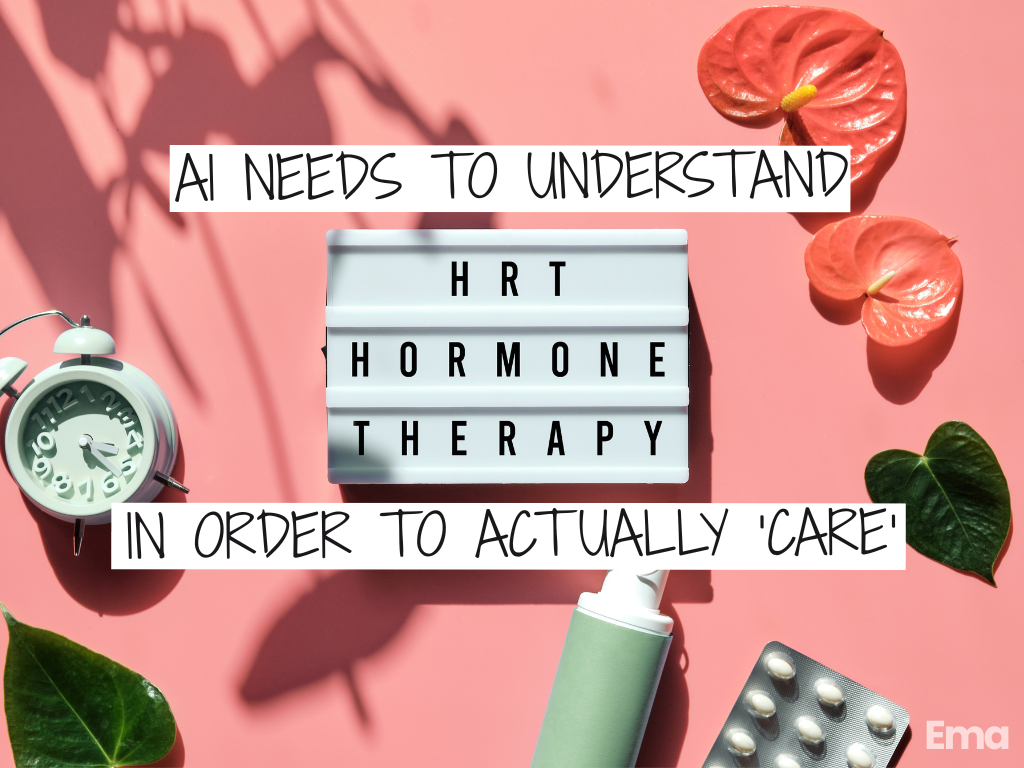
By Morgan Rose, CNM, WHNP-BC, and Dr Kudesia, triple board-certified in Reproductive Endocrinology & Infertility (REI), Obstetrics & Gynecology, and Lifestyle Medicine
The timing of when women start hormone replacement therapy (HRT) may matter more than we ever understood.
The “critical window” for starting HRT isn’t just relevant to brain health; timing has also been shown to shape cardiovascular outcomes.
Early analyses of the landmark WHI trial missed this nuance, including women long past menopause and obscuring benefits seen in those who begin therapy sooner.
Recent research presented at the American Neurological Association Annual Meeting found that women who began HRT within five years of menopause had a 32 per cent lower risk of developing Alzheimer’s disease.
Yet those who started HRT more than five years after menopause showed higher levels of tau proteins, a hallmark of Alzheimer’s, in their brains.
This “critical window” concept challenges the one-size-fits-all model of menopause care. It suggests that when we start HRT, it can be just as important as whether we start it.
Researchers at Mass General Brigham found similar patterns: women who began HRT near the onset of menopause did not show increased Alzheimer’s risk, while those who experienced early menopause with longer lifetime estrogen deprivation faced a higher risk overall.
Why Timing Matters
Women face roughly a 1 in 5 lifetime risk of Alzheimer’s disease, compared to 1 in 10 for men of the same age. The sharp drop in estrogen during menopause may help explain that gap.
Estrogen supports energy production, blood flow, and inflammation control in the brain functions that wane as levels decline.
The data suggest that initiating HRT earlier (around perimenopause or early menopause) may preserve some of these neuroprotective effects, while starting too late could heighten risk once neurodegenerative changes have already begun.
One meta-analysis showed that HRT begun soon after menopause reduced Alzheimer’s risk by over 40 per cent compared to non-users, while starting after age 60 doubled the risk.
These findings don’t make HRT a blanket prescription; they make it a precision intervention.
The Clinical Nuances AI Must Understand
If AI is going to support menopause care safely and intelligently, it needs to understand the reasons behind the actions.
1. Timing Is a Risk Modifier
“Time since menopause” is not just a demographic; it’s a clinical determinant.
AI systems must understand that the same therapy can carry opposite implications depending on when it’s initiated.
2. HRT Is Not Monolithic
There are multiple formulations, routes, and combinations.
For women who still have a uterus, adding progesterone helps protect the uterine lining and lowers the risk of endometrial cancer that can occur with estrogen-only therapy.
Topical estrogen, which has much lower absorption into the bloodstream, may be appropriate for perimenopausal women who are still having periods or postmenopausal women with a uterus who need targeted relief of vaginal or urinary symptoms.
For example:
- Estrogen-alone therapy can raise the risk of endometrial cancer and is typically not recommended for women with a uterus.
- Topical estrogen, with much lower systemic absorption, may be appropriate for perimenopausal women still having periods.
These distinctions must be explicitly encoded into AI frameworks to avoid oversimplified or unsafe recommendations.
3. Safety Requires Scope and Referral
Complex topics like HRT timing and neuroprotection should always prompt an automatic follow-up:
“Please consult a menopause specialist or clinician (such as one credentialed through the North American Menopause Society) to discuss the risks, benefits, and best options for you.”
AI logic must mirror how clinicians practice by inviting deeper discussion, not replacing it.
From Symptoms to Systems Thinking
We need to move beyond viewing menopause as a set of symptoms to manage, and instead see it as a neurological and metabolic inflection point in women’s lives.
That means:
- Bringing conversations about HRT earlier, during perimenopause, when neuroprotective benefits may still be possible.
- Designing AI systems that recognise context and chronology, not just keywords.
- Making personalised, evidence-based menopause guidance accessible to every woman by cutting through misinformation and connecting her to trusted care.
The Bigger Picture
For too long, women’s midlife health has been under-researched and under-resourced. The result is a data gap, which can quickly become a bias when encoded into AI.
If we want women’s health AI to truly care, it must be trained on data that understands the complexity of hormonal transitions, not just the vocabulary of them.
Because the difference between “now” and “five years from now” can determine whether a woman ages with clarity or confusion.
AI should know that.
And soon, it will.
Dr Kudesia is nationally recognised for her expertise in fertility awareness, lifestyle, and culinary approaches to reproductive health, and her advocacy for reproductive rights.
News
The #1 complication of childbirth: The crisis hiding in plain sight

By Dr. Jennifer L. Payne and Alisa Marie Beyer
Postpartum depression (PPD) isn’t just the “baby blues.” It’s the most common complication of childbirth, affecting 1 in 5 new mothers, and yet it remains dangerously underdiagnosed, misunderstood, and too often untreated.
Baby blues vs. postpartum depression
Up to 80 per cent of new moms experience the baby blues: brief emotional shifts, crying, irritability, mood swings, that typically resolve on their own within 1–2 weeks after birth. But PPD is different. It’s a serious medical condition that can begin during pregnancy or emerge weeks or months after delivery. It lasts longer, hits harder, and requires clinical care.
The Impact of PPD:
- 50 per cent of women with PPD receive no treatment
- PPD contributes to nearly 1 in 4 maternal deaths
- It costs the United States US$14+ bn annually in healthcare
Many women don’t recognise what they’re experiencing. Others are too overwhelmed, ashamed, or unsupported to seek help. Meanwhile, our healthcare system is still rooted in reactive models that rely on self-reporting, often when a mother is already in crisis.
A predictive breakthrough: Introducing myLuma
At Dionysus Health, we believe mothers and babies deserve better. That’s why we developed myLuma, the first clinically validated prenatal blood test that predicts a woman’s risk of developing PPD as early as 28 weeks into pregnancy.
Why this matters: A shift from reactive to predictive
Traditionally, PPD is diagnosed after symptoms appear often late, inconsistent, and subjective. myLuma changes the timeline. It gives providers a clear, scientific window into risk before birth so they can prepare personalized support and interventions before a crisis hits.
How it works: The science behind the test
The core of myLuma is epigenetics: the study of how stress and environment affect gene expression without changing the DNA itself. During pregnancy, a woman’s body undergoes massive hormonal, neurological, and emotional changes. These shifts leave molecular fingerprints – biomarkers – in the blood. Using these markers, myLuma predicts PPD with up to 85 per cent accuracy.
Our scientific journey:
- 2014–2020: Discovery of epigenetic biosignatures linked to PPD
- 2020–2022: Patent filings, US$4.5m NIH funding, and clinical validation in 600+ patients
- 2022–2024: Biomarker-brain function mapping, U.S. patent secured, and national accelerator support
- 2025: Awarded US$10m by the Department of Defense to expand clinical trials and pursue FDA approval
So… is this really the first blood test to predict PPD?Yes. Thanks to a decade of innovation in molecular diagnostics, AI-powered analytics, and epigenetic discovery, myLuma offers a new lens into maternal mental health that was never before possible.👉 It’s a third-trimester blood test.
👉 It offers early, personalised insights.
👉 It empowers OBs, midwives, and health systems to intervene before it’s too late.
The solution: Prediction + care coordination
Prediction alone isn’t enough. That’s why Dionysus Health has partnered with Mammha, a leading perinatal mental health platform, to ensure every woman flagged as high risk is met with wraparound support: behavioral health, therapy, doula access, medication planning, and more.
This new model combines biological insight + human support: a proactive care plan tailored to each mother’s unique needs.
What Is a clinical study—and what’s live now?
A clinical study is a carefully designed research trial used to evaluate the safety, effectiveness, and real-world impact of a medical test or treatment. Right now, Dionysus Health is leading two major studies, funded by the U.S. Department of Defense, to validate the clinical utility of our test, myLuma™, the first prenatal blood test that predicts a woman’s risk of PPD.
Study #1: PREVAIL (UVA + Inova Health System) is a 1,000-participant study evaluating how the availability of biological risk information for PPD during pregnancy might influence healthcare decision-making and patient outcomes.
The study follows participants from their third trimester through postpart
um to assess impacts on referral patterns, treatment engagement, and depression symptoms. This information is being used solely for research purposes and is not intended for clinical decision-making outside of the study.Study #2: BRAVE: This observational study follows 1,000 pregnant women using both blood and saliva samples, testing the accuracy of the myLuma biomarkers without sharing results with participants or doctors.
It’s designed to validate the algorithm, strengthen the FDA approval pathway, and expand accessibility—especially for underserved populations or those in rural areas.
Together, these studies are paving the way for myLuma to become the first-ever biological test to predict a mental health condition before symptoms appear, a potential game-changer in maternal care.
Setting the standard in maternal mental health
PPD has long been an invisible crisis. With myLuma, we’re finally changing that. This isn’t just a test, it’s a paradigm shift.
Because when we see it coming, we can act sooner, intervene smarter, and help moms thrive, not just survive.
The path ahead
myLuma launches commercially in October 2025, with clinical pilots already underway in OB and IVF clinics in California, Florida, and Texas.
Together, we can rewrite the postpartum story for millions of women.
Because when mothers thrive, families flourish, and the entire healthcare system benefits.
About the authors
Dr. Jennifer L. Payne is the chief medical officer at Dionysus Health and a leading psychiatrist and researcher in reproductive mental health. She is the founder of the Women’s Mood Disorders Center at Johns Hopkins, vice chair of research at the University of Virginia, and director of the Reproductive Psychiatry Research Program at UVA.
Alisa Marie Beyer is a healthcare executive, birthing professional, and entrepreneur with over 20 years of experience bridging birth and business. As chief operating officer of Dionysus Health, she leads commercial strategy for myLuma, a pioneering prenatal test predicting postpartum depression risk. She also founded Let’s Talk Birthy, providing childbirth education for first-time moms.
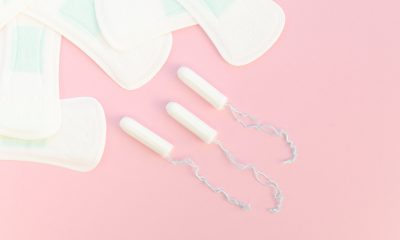
 News1 week ago
News1 week agoDozens of women report suffering painful burns after using Always sanitary towels
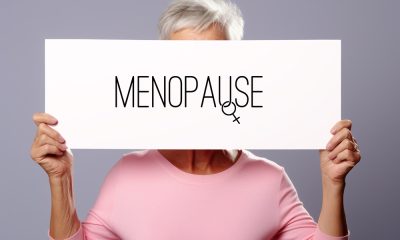
 News4 weeks ago
News4 weeks agoFDA plans to revise black box warning on menopause hormone therapies

 News2 weeks ago
News2 weeks agoWomen’s health innovations recognised in TIME’s Best Inventions 2025

 News3 weeks ago
News3 weeks agoAI-powered women’s health companion Nexus launches in UK
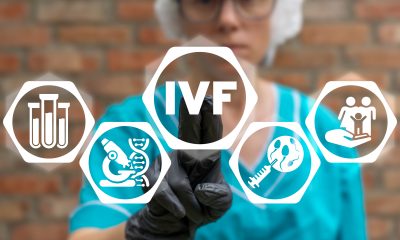
 News4 weeks ago
News4 weeks agoScientists turn human skin cells into eggs in IVF breakthrough

 Wellness2 weeks ago
Wellness2 weeks agoCutting through the noise in femtech – key takeaways from Women’s Health Week 2025
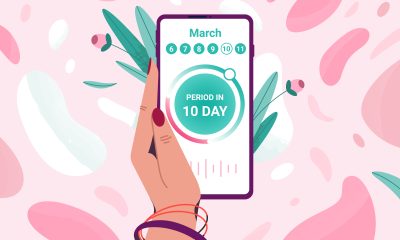
 Adolescent health3 weeks ago
Adolescent health3 weeks agoMenstrual cycle affects women’s reaction time, study finds

 News4 weeks ago
News4 weeks agoDaily pill could delay menopause ‘by years,’ study finds




